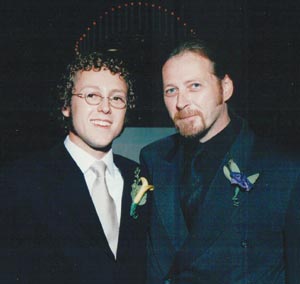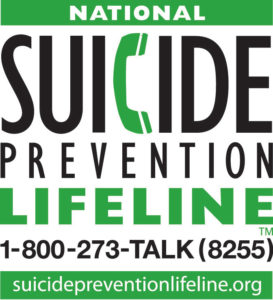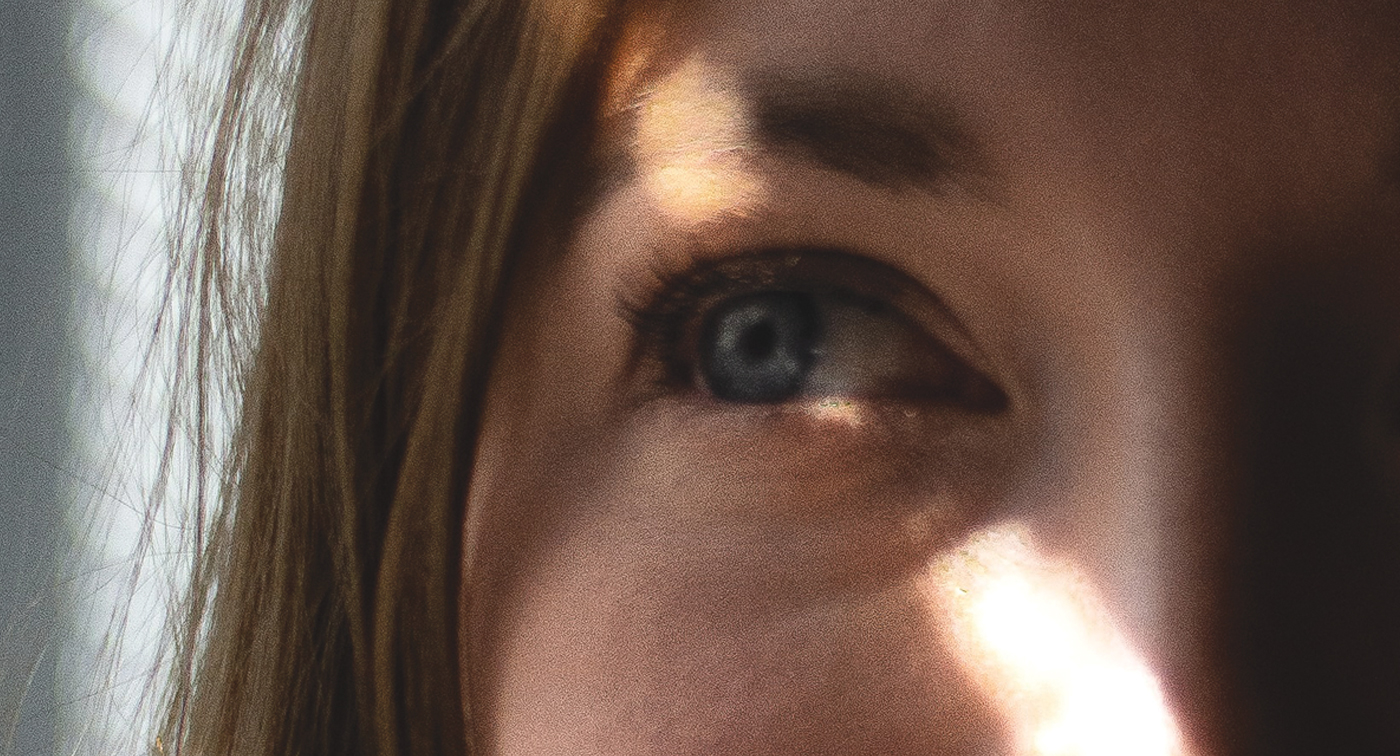A Meditation on the Loss of a Father
I am constantly thinking about the things we carry. I originally got this idea from Tim O’Brien’s The Things They Carried, a collection of short stories about the Vietnam War. In the book, he writes about some of the things the characters carried:
On ambush, or other night missions, they carried peculiar little odds and ends. Kiowa always took along his New Testament and a pair of moccasins for silence. Dave Jensen carried night-sight vitamins high in carotene. Lee Strunk carried his slingshot; ammo, he claimed, would never be a problem. Rat Kiley carried brandy and M&M’s candy. Until he was shot, Ted Lavender carried the starlight scope, which weighed 6.3 pounds with its aluminum carrying case. Henry Dobbins carried his girlfriend’s panty hose wrapped around his neck as a comforter. They all carried ghosts.
While most of us have never been to Vietnam, we all carry things: both the tangible and the intangible. For some of us, our loads are more noticeable than others. Some of the things we carry are given to us, placed upon us, sometimes even dumped on us. These are the things we don’t have any control over. They are, to put it in fatalistic terms, “the cards you’ve been dealt.”
I think about people with disabilities, or people who have been abused, people who have been bullied or grew up poor, underprivileged, and disenfranchised because of race, education, geography, etc. There are things we carry that our parents or other family members gave us. Things we’d never choose to carry on our own, like mental illness, an alcoholic father, or abuse from a family member. But we carry them nonetheless, and often their weight becomes so burdensome that it almost leaves us completely bent over.
There are other things we carry that stem more from our own choices: whether we should stay involved in certain relationships, whether we are generous enough with our resources, how we raise our children, or even simple choices about how we respond to someone. These are things that can become burdensome later on in life. It’s important to remember that the line between these two kinds of weights we carry is intangible, almost imperceptible. We may or may not be our own best judge when it comes to untangling the nature of the things we carry. And yet, we can come to a place where we accept the weight as part of our human condition.
My stepfather committed suicide in 2003. For as long as I knew him, he carried a lot of weight. While my siblings and I were growing up in Canton, Ohio, he would often share his childhood memories with us; one memory he spoke of frequently was being woken up by his father at 4:00 a.m. to work in the family-owned donut shop. On more than one occasion, he recollected what it was like to be in elementary school and wake up that early to work before he was bused off to school. And when he was done at school, he’d return to the shop, working until it was dinnertime. There was a five-gallon bucket behind the cash register for him to stand on so he could see over the counter and help the customers. These were not fond memories of fishing with Dad down by the river. I know he held onto a lot of pain from those adolescent years, and felt the distance of his own father, who was more like an employer than a nurturer.
My own childhood — I grew up with five younger siblings— was marked by my step-dad’s growing depression and unhappiness. He still worked at the donut shop when we were kids, and he pretty much hated it. The sound of the gravel crunching in the driveway under the tires of his Oldsmobile station wagon meant Dad was home from work and that was our cue to run for cover, because we knew that not even God could cheer him up after a day’s work.
And then he got into a terrible car accident. A cement truck ran a red light and plowed into the driver’s side door of his car. The injuries from the accident rendered him unable to work. After a huge lawsuit and lots of rigmarole, he ended up mostly retired from work around the age of 35—the age I am about to turn this fall. He received a small social security check and the lawsuit money. The eight of us lived off that meager SSDI (Social Security Disability Insurance) check every month. He spent most of the lawsuit money on woodworking tools and guns—lots and lots of guns.
In the time after his accident, my step-dad slipped further and further into depression. He began to isolate himself by “working” long hours down in the basement where he learned how to woodwork, listened to short-wave radio, and worked on his guns. The time alone compounded on itself as the more time he spent isolated in the basement, the more paranoid he became of government take over and other complex conspiracy theories.
I remember the summer when things really went downhill. I was still living at home (we had moved to Alliance, Ohio), and he asked my brothers and me to go out to the backyard to dig a hole. “What’s the hole for?” I asked naively. He showed us a tightly packed five-gallon bucket that had been sealed to make it waterproof. It was packed full of guns and ammunition. We did as we were told, but that did it for me. That point left a mark on the growing distance between my step-dad and myself. I could tell he was unwell and needed help, but this was getting very serious. I felt like I really didn’t understand him anymore. Shortly after that, I moved away to college, back in Canton.
Six years later in 2003, my wife and I moved to Los Angeles, California, at the end of the summer. There was part of me that was running from the weight I carried. Little did I know that I was about to be hit with the heaviest load of my life. After moving, I talked less and less to Dad. It was too difficult to weed through the depression and paranoia over the phone. His isolation was getting worse, and it seemed like he was spiraling out of control. But what could I do? I lived 3,200 miles away and felt deeply disconnected from him in so many ways. Henri Nouwen, the late author and mystic, says that people who commit suicide come to a point where they believe that there is no one left to wake up for, that they’ve lost all reason to live and any hope for getting through to tomorrow. I can now see that this is exactly the place where he found himself at the age of 47.
We got the call a week before Thanksgiving, just a couple months after we moved to California. He turned on the generator he bought for the Y2K scare and let it run while he sat on the couch alone in the living room and waited for it all to end.
They carried all the emotional baggage of men who might die. Grief, terror, love, longing—these were intangibles, but the intangibles had their own mass and specific gravity, they had tangible weight. —Tim O’Brien

Recovering from the death of a parent is very hard, maybe even impossible. Recovering from a parent’s suicide adds a whole new layer because there is a lot of guilt and anger and unanswered questions that seem to have nowhere to go. I noticed only a few months ago that I was still carrying around the weight of his death and that I was having a hard time shaking it. The weight came in the form of my own anger and hurt and the negative emotions attached to those feelings. I came to realize that, at a subconscious level, I was directing my anger toward my memories of him. I was filtering out any positive memory, any possible connection that was joyful, and focusing solely on the negative. By the time I realized what I was doing, almost ten years later, it felt near impossible to sit and reminisce around happy thoughts. I truly have to work to remember the good times. I now recognize that this struggle is due to my memory being clouded by years of fighting against the weight of his suicide.
Along with this insight came the obvious remedy: I don’t have to dwell on the negative emotions and memories. I get to choose which memories of him to focus on: which ones to actively recall and which ones to lay aside. I get to choose which emotions I associate with him and his life. I can find ways to receive and accept the past without being angry at him. I am still unhappy about—even alarmed by—some of the choices he made in his life, but there is enough distance now that I am able to accept those choices as part of our story and the much longer story of his own narrative. I finally realized the things I carry that I have no choice over will weigh me down only if I let them; I have the power to reframe the perspective of my memories—from one that fights against this reality to one that openly receives it. I have now come to a place—a place of healing—where I am working to recall the positive moments, memories, and emotions surrounding my step-dad.
We all carry things. Some of them are unwanted. Some of them we’re not even sure how they got there. Some things I believe we can get rid of, or we can at least unload some of the weight. Some of these things, like a suicide, will be with us forever; even though the impact may be invisible to others, it remains a strange kind of presence we can always sense. But I believe that we can learn how to carry the gravity of these intangibles without being crushed by their weight—receiving them and moving through them rather than constantly fighting against them. We can learn to work with and around our ghosts. Because we all carry ghosts, and sometimes they carry us.







Beyond the threshold of death is life. I have often felt that my friends who chose suicide were trying to reach out to that new life and to end the pain of this one. Their decision or impulse to suddenly die causes their family and friends to feel pain and remorse. But the one who chooses to release his life of what he is burdened by is not trying to hurt those who loved him. He is simply saying “Enough, I cannot carry these troubles any longer.”
Maurine Pyle
Wess, I was in college the first time I knew someone who committed suicide. I remember vividly going to gospel choir practice the evening I found out, just trying to process & grasp what had happened. At the end of every practice we used to sing a Kirk Franklin benediction- “May his peace be with you, till we meet again.” I haven’t thought if that song in years , but I read your article and find that tune running through my mind. Blessings, friend. May God continue to share peace and comfort and wise perspective with you. Thanks for writing.
[…] If you’d like to read it, listen to the audio of me reading it or see a short video interview about it go here: Suicide and the Things We Carry. […]
” I don’t have to dwell on the negative emotions and memories. I get to choose which memories of him to focus on: which ones to actively recall and which ones to lay aside. I get to choose which emotions I associate with him and his life”
So much wisdom in those three sentences ! They may be the key for getting some closure. But what happens when you’ve been abused for so long that you have virtually no positive emotions and memories to focus on ?
[…] month, an article I wrote about the suicide of my step-dad was published in Friends Journal, “Suicide and the Things We Carry”. It took me ten years to really come to a place where I can say I have experienced healing in […]
[…] on Antioch Session about the death of my friend and Quaker pastor Stan Thornburg, as well as my article in Friends Journal about the suicide of my step-father. I wanted to reflect on what I’m learning through all of this from a pastoral care […]
[…] month, an article I wrote about the suicide of my step-dad was published in Friends Journal, “Suicide and the Things We Carry”. It took me ten years to really come to a place where I can say I have experienced healing in […]